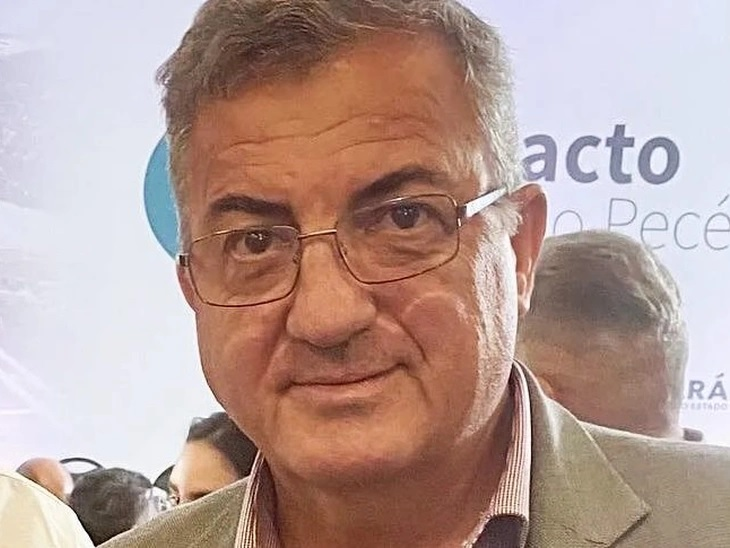
 Biogas
Biogas
T&B Petroleum/Press Office

Cegás and GNR Fortaleza, a biogas plant resulting from the partnership between Marquise Ambiental and MDC companies, inaugurated today, at GNR Fortaleza's headquarters in Caucaia, an automated system that will conduct new tests for blending biomethane with natural gas in Cegás' distribution network. The event was attended by Cegás' president, Miguel Nery (photo), Bahiagás' president and chairman of Abegás' Board of Directors, Luiz Gavazza, directors of GNR Fortaleza, and executives from gas companies in Ceará, Pernambuco, Rio Grande do Norte, Alagoas, Paraíba, and Bahia.
With a six-month deadline, the pilot project has special authorization from ANP, and the results could be used as a basis for updates to the sector's regulations. ANP's approval for this type of operation is unprecedented in the country. Consequently, Cegás will start receiving a controlled mixture of natural gas and biomethane in its pipeline network. This pioneering configuration reinforces CEGÁS's position among the most renewable gas distributors in the world.
Inaugurated in 2017, GNR Fortaleza captures and treats biogas produced at the landfill that receives solid waste generated in the metropolitan region of Fortaleza, in Caucaia. The plant purifies the biogas for biomethane production, transforming an environmental liability into a high-value energy asset with a reduced carbon footprint. Fossil-origin natural gas and biomethane are interchangeable fuels due to their identical chemical characteristics, thus can be injected and distributed in the same network. The difference lies in the renewable source of the latter, with the potential to reduce carbon emissions compared to its fossil equivalent.
Since 2018, GNR Fortaleza has been injecting biomethane directly into Cegás' network, pioneering this operation in the country. Currently, the biofuel accounts for up to 15% of the gas distributed by CEGÁS. The contract between Cegás and GNR Fortaleza provides for the supply of up to 100,000 cubic meters of biomethane per day.
Prior to the test, Cegás supplied gas to its end customers in three different compositions: some parts of the network received pure natural gas, some received pure biomethane, and the last fraction received a mixture of the two fuels. Now, with the changes brought about by the test, all biomethane and natural gas are pre-blended and monitored before entering the distribution network.
Cegás and GNR Fortaleza invested in a station for blending the fuels. The system is automated, controlling the product quality and injecting it directly into the distribution network, ensuring compliance with the minimum calorific value specifications required by ANP. ANP will periodically monitor the test results, which, if successful, could support updates to the regulation of biomethane blending with natural gas in the country's networks.
The test also provides for greater utilization of landfill biogas. ANP authorized four specific parameters of biomethane composition to be altered before being mixed with natural gas. The final mixture of this trial must necessarily comply with all quality regulations currently established by the regulatory agency.
Consequently, this measure reduces the loss of captured biogas, leading to an increase in the plant's biomethane production. It is expected that with the new system, GNR Fortaleza will increase biomethane injection into Ceará's network.
Cegás' president, Miguel Nery, stated that the experience with GNR Fortaleza is a great demonstration of the Company's innovation capacity. "We are very proud to have been pioneers in injecting biomethane into the pipeline network that distributes piped gas to our industrial, commercial, residential, and automotive customers. Now, we are happy to take another innovative step with this new operating model, which will allow the regulation of biomethane use on a national scale," said Nery.
Thales Motta, director of Ecometano, an MDC subsidiary that is a partner of GNR Fortaleza, highlighted the pioneering spirit of the companies involved in the operation, proposing "solutions that contribute to the advancement of regulation and sector growth." "The market is attentive to the results due to its potential to increase the consumption of biomethane in the country's networks, contributing to the reduction of carbon emissions and energy transition," said Motta. Informed, ANP's director-general, Rodolfo Saboia, celebrated the study and its potential to contribute to efforts for a low-carbon economy. "The world is moving towards decarbonization.
A great challenge on one hand, and an opportunity on the other. ANP, as the regulatory body, has been working to ensure that biomethane's participation is consolidated and gains space in the national energy matrix. GNR Fortaleza has already been injecting biomethane into the natural gas distribution network and was recently authorized to carry out a pilot project that will provide new data, essential for regulatory improvement. I believe we are on the right path," said Saboia.
Contact us